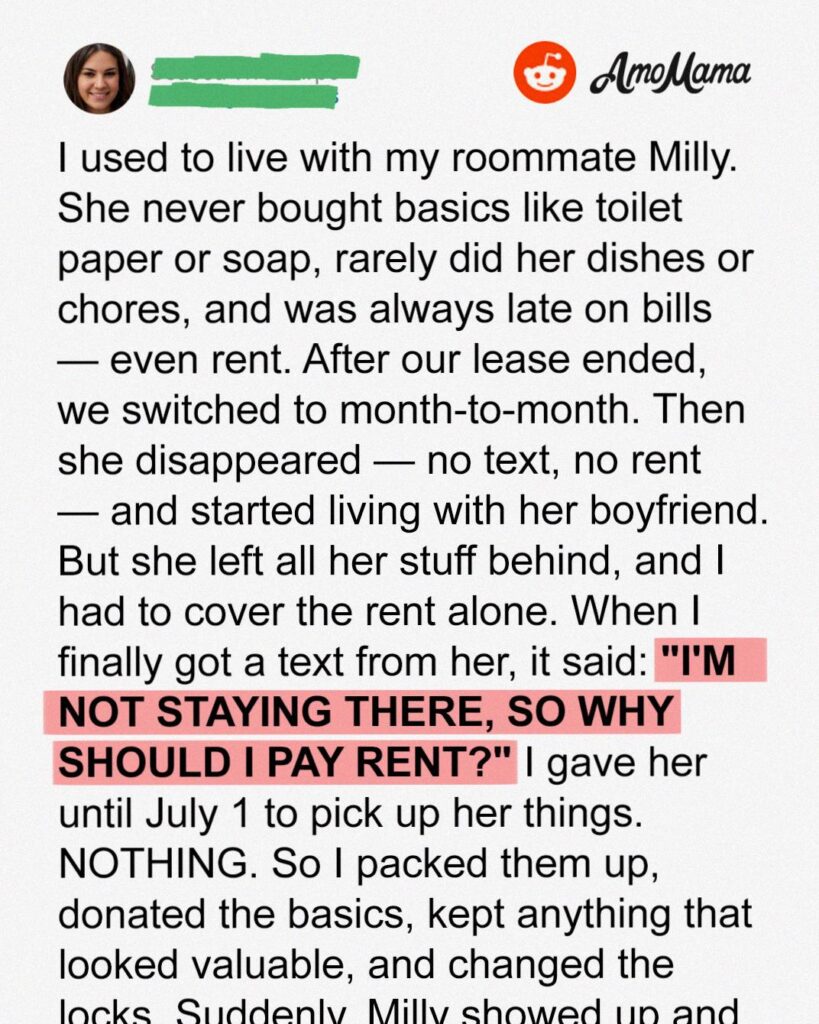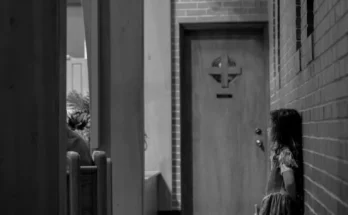When Cynthia moved into her new apartment, she thought she’d found the perfect setup: a cozy space shared with Milly, a sweet and seemingly thoughtful roommate. At first, things felt promising—movie nights, friendly chats, and the comfort of not living alone. But beneath Milly’s charm lurked a troubling pattern: she never contributed to household essentials, borrowed without asking, and always had an excuse when rent was due.
Cynthia covered Milly’s share the first time out of kindness. The second time, it was guilt-tripped out of her. By the third, it was clear—Milly had no intention of paying her way. The apartment became a mess, the bills piled up, and Cynthia found herself cleaning up both physically and emotionally.
Then, without warning, Milly vanished—off to live with her boyfriend. No goodbye, no rent, just her belongings left behind like a ghost of irresponsibility. Cynthia tried reaching out: texts, calls, even contacting Milly’s mother. Silence. For two months, Cynthia paid both halves of the rent, hoping Milly would return or at least respond.
She didn’t.
So Cynthia made her own plans. She gave a final deadline, packed up Milly’s things with help from friends, donated the basics, stored the personal items, and changed the locks with the landlord’s approval. It was a painful but necessary act of reclaiming her space—and her peace.
Days later, Milly returned, furious. She pounded on the door, demanding her things, especially a box she claimed held her grandmother’s wedding dress. But the box had been unlabeled and donated. Cynthia felt a pang of guilt, but she had warned Milly, documented everything, and acted with fairness. Even Milly’s mother acknowledged the situation.
Milly threatened legal action, but she had no case. She left angry. Cynthia, finally, felt closure.
💡 The Lesson: Kindness should never be mistaken for weakness. In shared spaces, communication and responsibility aren’t optional—they’re essential. Cynthia didn’t just clean house; she reclaimed her dignity.



